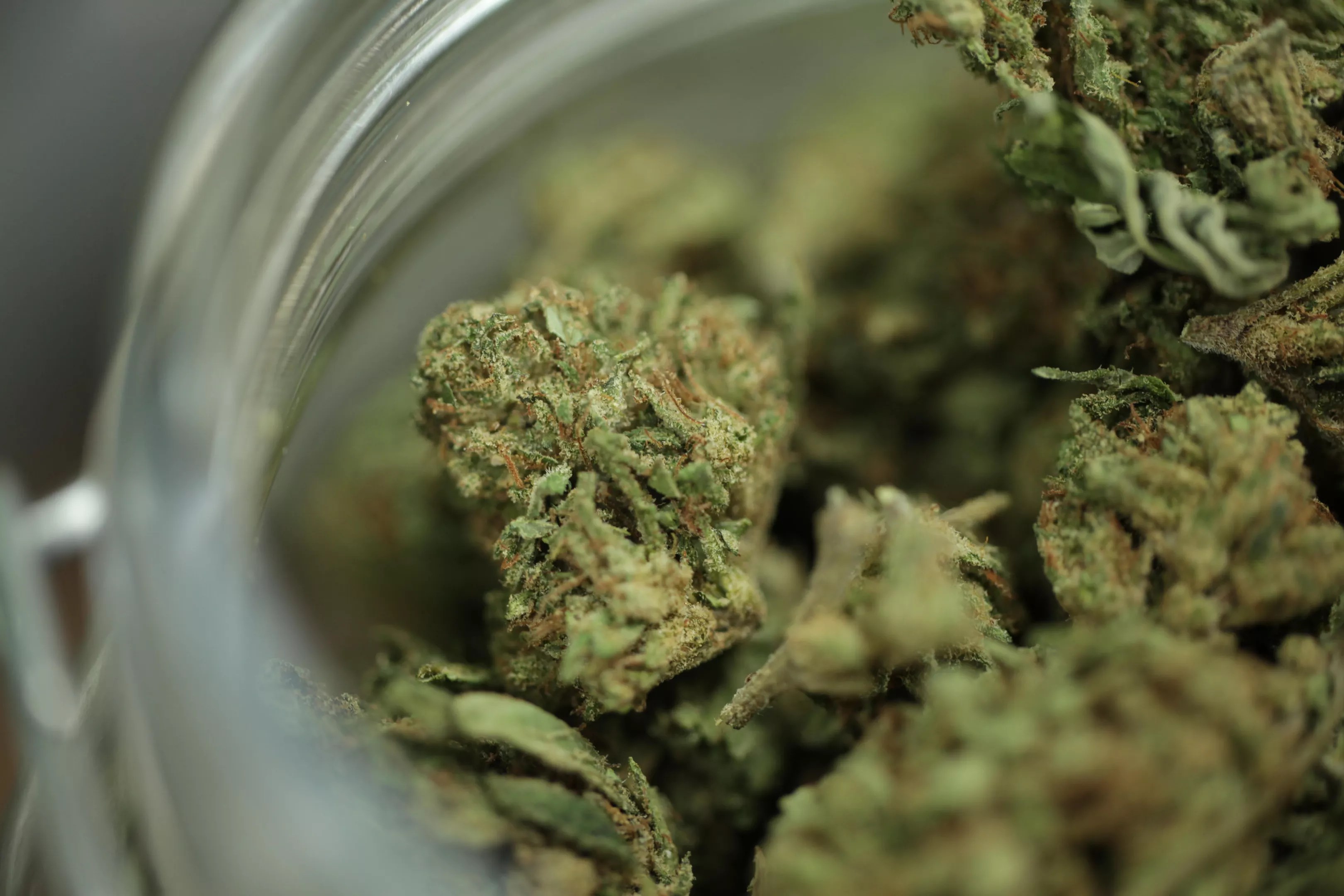
Malen Blackmon

Audio By Carbonatix
The U.S. Food and Drug Administration has been asked multiple times over the years to regulate CBD as a dietary supplement or food additive. Just last week, the agency said a new regulatory pathway is needed to protect people who use the stuff.
Some in the hemp industry say they are frustrated with the decision but not surprised.
In a statement about the decision, Janet Woodcock, the FDA’s principal deputy commissioner, said there are safety concerns associated with consuming CBD, especially with long-term use.
“Studies have shown the potential for harm to the liver, interactions with certain medications and possible harm to the male reproductive system,” Woodcock said. “CBD exposure is also concerning when it comes to certain vulnerable populations such as children and those who are pregnant.”
CBD is one of many compounds found in the cannabis plant called cannabinoids. It is non-psychoactive, meaning it won’t get you high. But people say it has therapeutic effects that help with relief of pain and anxiety and improved sleep. In 2018, the FDA approved a drug called Epidiolex that contains CBD and is meant to treat seizures associated with severe forms of epilepsy. But Woodcock said regulating CBD as a dietary supplement or food additive wouldn’t be enough to protect consumers.
“Given the available evidence, it is not apparent how CBD products could meet safety standards for dietary supplements or food additives,” Woodcock said. “For example, we have not found adequate evidence to determine how much CBD can be consumed, and for how long, before causing harm.”
“We believe this will only further legitimize the industry.” – Ben Meggs, Bayou City Hemp Company
Woodcock said a new regulatory pathway could include requirements for clear labeling, CBD content limits, contamination prevention and a minimum purchase age. This new set of regulations could also address CBD products for animals. She said the FDA would work with Congress to determine how to regulate CBD.
Several national industry groups issued statements saying they were disappointed with the FDA’s decision.
Jonathan Miller, general counsel of the U.S. Hemp Roundtable, said in a statement that when it comes to the safety of CBD, the FDA gets it wrong. “Contrary to the FDA’s continued assertions regarding the safety of CBD, there is clear, established evidence of safety over the years,” Miller said. “We therefore see no need for FDA to go through the lengthy, burdensome exercise of establishing a new regulatory pathway for CBD, or other hemp-derived cannabinoids.” Miller said the FDA already has every tool it needs to safely regulate CBD.
The FDA already requires compliance with current good manufacturing practices to prevent contamination, he said. It also already enforces a mandatory facility registration and compliance with the Food Safety and Modernization Act, which gives the agency authority to recall products. The Federal Trade Commission also already has rules that prohibit false or misleading labeling.
Daniel Fabricant, president and CEO of the Natural Products Association, called the FDA’s decision a dereliction of duty.
“This is an astonishing dereliction of duty, especially compared to the agility and professionalism the agency showed it was capable of during the pandemic,” Fabricant said in a statement. “After more than a decade of promises, hearings, data sharing, market proliferation, and states filling the regulatory vacuum, the FDA’s Dietary Supplement Office claims it cannot do what Congress authorized, which is to regulate dietary supplements under the law.”
Zachary Maxwell, president of Texas Hemp Growers, said the FDA should stay out of CBD altogether.
“Any person with knowledge of the FDA’s bank of junk ‘science’ it uses to browbeat the industry will agree the last thing we want is the FDA forming any regulations,” Maxwell told the Observer. He said he’s afraid that any set of regulations the FDA comes up with for CBD, even as a dietary supplement, could end up being too strict and too costly for smaller companies in the market. He thinks many companies would get priced out of the CBD industry.
Others, like Ben Meggs, the CEO and co-founder of Bayou City Hemp Co., a Houston-based hemp manufacturer, are more optimistic. “As the leader in the Texas hemp industry, Bayou City Hemp Company is in support of regulations so long as it’s fair and appropriate laws,” Meggs said. “We believe this will only further legitimize the industry. The important thing is to balance the consumer desire for CBD products with a regulatory framework to ensure safety, and we hope the FDA and Congress can do so.”
Maxwell would rather have CBD regulation left up to individual states. While it’s not perfect, he said the way the Texas Department of State Health Services regulates CBD is adequate in keeping consumers safe. He doesn’t want the FDA’s hands in the CBD market, but he’s glad the agency’s decision will get Congress involved.
Other industry associations, such as the U.S. Hemp Roundtable, shared a similar view. Miller said the group has advocated for years for Congress to get involved to present a legislative solution to regulating CBD and other hemp-derived cannabinoids. Maxwell hopes that legislative solution is to kick CBD regulation back to the states.